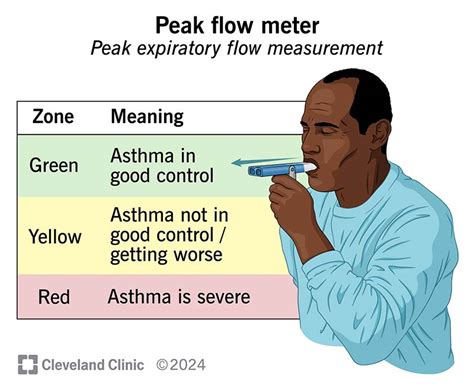What Are New Covid Variants? Protection Tips Inside

The COVID-19 pandemic has introduced the world to a myriad of challenges, one of the most significant being the emergence of new variants of the virus. These variants have been a subject of concern due to their potential to spread more easily, cause more severe disease, and evade the protective effects of vaccines and treatments. Understanding what these new COVID variants are, how they arise, and most importantly, how to protect against them is crucial for navigating the evolving landscape of the pandemic.
Emergence of New Variants
New COVID variants emerge due to mutations in the virus’s genetic material. When the virus replicates, it can make mistakes in its genetic code, leading to changes in its properties. Most of these mutations have minimal impact, but occasionally, they can result in a variant that is more transmissible, virulent, or capable of evading immune responses. The World Health Organization (WHO) and other global health authorities closely monitor these variants, categorizing them based on their potential impact.
Types of COVID Variants
Several COVID variants have been identified and categorized based on their characteristics and potential threat. The most notable include:
- Alpha (B.1.1.7): First identified in the United Kingdom, this variant was found to be more transmissible than the original strain.
- Beta (B.1.351): Originating in South Africa, this variant showed a significant reduction in neutralization by antibodies generated against earlier versions of the virus.
- Gamma (P.1): Identified in Brazil, this variant also demonstrated potential for immune evasion.
- Delta (B.1.617.2): First detected in India, the Delta variant is known for its high transmissibility and has become a dominant strain worldwide.
- Omicron (B.1.1.529): Emerged in South Africa, Omicron has been noted for its rapid spread and ability to infect individuals previously vaccinated or recovered from COVID-19, though it often results in milder symptoms.
Protection Tips
Given the evolving nature of COVID-19 and its variants, staying protected requires a multifaceted approach. Here are some key strategies to enhance your defense against new COVID variants:
1. Vaccination
- Stay Up-to-Date: Ensure you receive all recommended doses of COVID-19 vaccines, including boosters. Vaccines have been updated to protect against newer variants.
- Encourage Others: Promote vaccination among your social circle and community to bolster herd immunity.
2. Masking and Social Distancing
- Use High-Quality Masks: Especially in crowded areas or when interacting with someone who might be infected, wear a mask that filters out at least 95% of airborne particles (e.g., N95, FFP2).
- Maintain Distance: Keep at least 6 feet of distance from others when in public spaces to reduce the chance of transmission.
3. Ventilation
- Improve Air Flow: Ensure good ventilation in indoor spaces by opening windows, using fans, or installing air purifiers to reduce the concentration of viral particles.
4. Testing and Quarantine
- Get Tested: If symptoms appear or after exposure to someone with COVID-19, get tested promptly.
- Quarantine: Isolate yourself if infected or exposed to prevent spreading the virus to others.
5. Hygiene Practices
- Wash Hands Frequently: Use soap and water for at least 20 seconds, especially after being in public, before eating, and after blowing your nose, coughing or sneezing.
- Use Hand Sanitizer: When soap and water are not available, use a hand sanitizer that contains at least 60% alcohol.
6. Stay Informed
- Follow Health Guidelines: Keep up with local health advisories, updates on new variants, and changes in recommendations for vaccines, masking, and gatherings.
- Consult Reliable Sources: Rely on information from reputable health organizations like the WHO, CDC, and local health departments for the most accurate and updated advice.
Addressing Misconceptions
There are several misconceptions surrounding COVID variants and vaccines. For instance, some believe that vaccines are ineffective against new variants, which is not accurate. While it’s true that some variants may partially evade immune responses generated by vaccines, the vaccines still offer significant protection against severe illness and hospitalization. Moreover, booster shots and updated vaccine formulations are continually being developed to enhance protection against emerging variants.
FAQ Section
What are the symptoms of COVID-19 caused by new variants?
+Symptoms can vary but often include fever, cough, fatigue, and shortness of breath. In the case of Omicron, symptoms might be milder and resemble those of a common cold, such as runny nose, sore throat, and muscle pains.
Can vaccinated individuals still spread COVID-19 to others?
+Yes, even if vaccinated, individuals can still spread COVID-19, especially if they become infected with a variant that partially evades vaccine protection. However, vaccination significantly reduces the likelihood of severe disease and hospitalization.
How often should I get tested for COVID-19 if I'm vaccinated?
+Follow local health guidelines for testing. Typically, you should get tested if you develop symptoms, have been exposed to someone with COVID-19, or before and after travel to areas with high transmission rates, regardless of vaccination status.
Conclusion
The emergence of new COVID variants underscores the dynamic nature of the pandemic and the need for ongoing vigilance and adaptation. By understanding the characteristics of these variants, staying updated on health guidelines, and implementing protective measures, individuals can significantly reduce their risk of infection and contribute to community safety. It’s crucial to approach the pandemic with a flexible mindset, ready to adjust strategies as new information becomes available, ensuring the best possible outcomes for personal and public health.


